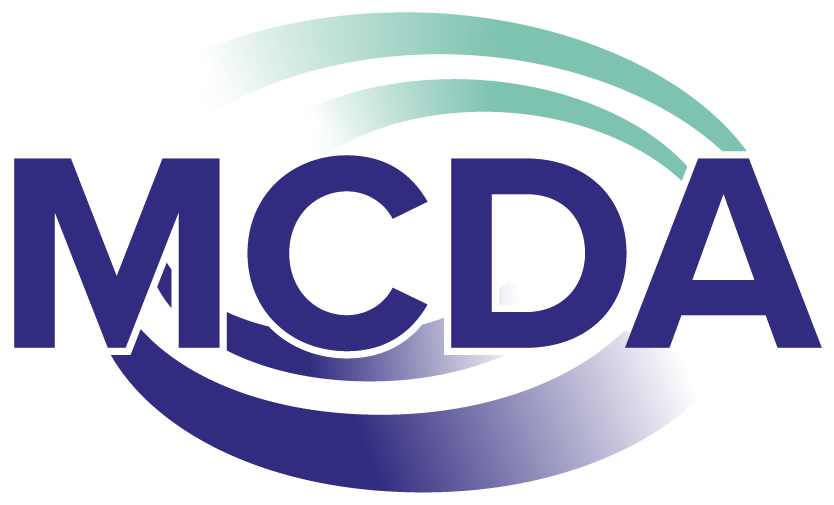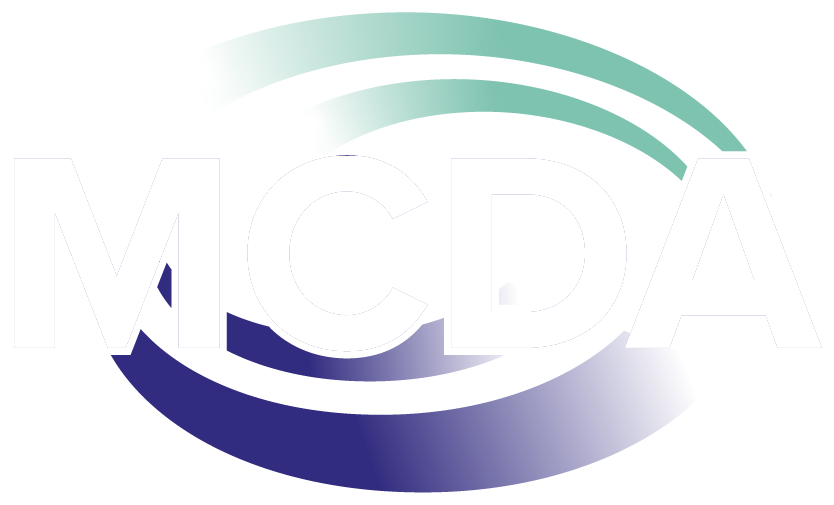The MCDA Professional Development Committee’s April program was a virtual panel showcasing the different types of places where career development professionals work.
This article includes some brief highlights, but I recommend that you view the PPT slides. Each panelist summarized key elements of their field within the slides, including types of clients served, types of presenting issues, types of services provided, who employs, qualifications needed, typical salary ranges, major skill sets needed, and personal traits/qualities needed to find the work fulfilling.
Higher Education – Jennifer Rogers
Jennifer is the Associate Director of Employer Engagement at the University of St. Thomas Career Development Center. In her Overview, she noted the main areas of responsibility in most higher ed career services offices:
- Career counseling/coaching (direct services to students and alumni)
- Employer Relations/Engagement (facilitate connections between students and employers, manage technology system and possibly CRM)
- Some colleges blend these roles, some have a clear separation
Typical additional responsibility areas can include:
- Teaching/Training/Group Facilitation and Presentations
- Marketing/Communication
- Writing & Content-creation
- Training & Mentorship of peer advisors and graduate student interns
Organizations that hire career professionals in this practice area include 4-year degree-granting colleges and universities (public and private) and 2-year community colleges. The latter work is broader in terms of advising/counseling scope but includes career work.
Clients are generally traditional-aged college students, 18 – 22 years, but many institutions have non-traditional aged students. In many colleges, clients can also be alumni of the institution, recent graduates up to people in their 50s. The client profile can include First Generation college students, students of color, immigrants & international, and Neuro-diverse.
Typical presenting issues include Choosing Major, Career exploration, Career change, Graduate school decision-making. Services include strategies for internship/job searching, networking, branding coaching regarding LinkedIn, elevator pitch, resume, cover letter, and interviewing skills.
Qualifications for this work: Most institutions will prefer a master’s degree in counseling, student affairs, human resources, or related program. Some universities are accepting bachelor’s degree with related experience. I think the NCDA – GCFC certification plus relevant experience would be acceptable in these spaces.
Salary ranges vary with type of institution (public university, 2-year college, private). Generally, Entry-level: mid-40’s to mid-50’s, and Experienced-level: 50’s to 70’s (higher at director-level, executive positions).
Government/Workforce Development – Heidi Stardig Stay
Heidi works for the MN DEED CareerForce Center as a supervisor for their Dislocated Worker Program. CareerForce services are supported by federal & state funds.
A variety of roles are available, including Employment Counselor (MFIP clients), Workforce development representatives (case management or work with the public), Vocational rehabilitation services (assisting persons with disabilities), Veterans’ services programs, and Youth programs.
Their main clientele are dislocated workers, those that have been laid off. Through MN DEED resources, they are offered access to re-training opportunities.
These career professionals are measured on how many people enroll in programs and how many get jobs – need to maintain 85% placement rate. Funding is based on these measures.
Average salary range: $40,000 – $60,000/year.
Nonprofit organizations – Natalie Bullinger
Natalie is the Employment Services Manager at Interfaith Outreach, which includes a group of community-based services, serving the West Metro area.
Their clients have multiple barriers to career choice and work, are diverse, may be international or immigrants and may have housing issues. Almost all their clients are low-income. It is usually a financial crisis that brings them to their services. Therefore, they offer wrap-around services to increase stability.
Other, larger Nonprofit organizations include: HIRED, Avivo, PPL, Emerge
Salary ranges: Low – Upper $40’s
Outplacement services – Tamara Tasche
Tamara is the Sr Vice President of Executive & Transition Services with CPI Minneapolis.
An executive coach herself, Tamara shared that CPI includes a mix of FT staff and adjunct/temporary coaches.
Their services are primarily for laid off workers representing a variety of roles and industries. Many may be over 50 yrs old. Clients are corporate-sponsored, i.e., their employer has contracted with CPI for services.
Typical issues: anxiety, lack of clarity for what is next, career direction/change, need help with personal branding, self-promotion, desire networking introductions, interviewing training,
Common career work may include career assessments, self-marketing, LinkedIn training (Ann Pryor is one of their providers), and interview prep.
They can provide unique AI Tools that look at things like – brand presence, dominance/aggressive vs collaborative, effective keywords to use on LI in order to be found by recruiters.
Work includes: Case management, Coaching/training, Assessment administration, and requires Writing Skills
Salary: mid-40’s – $100,000 if working with Executives
Adjuncts: % of client fee, OR ~$50/hour
Other outplacement firms: Challenger, Gray & Christmas; Lee Hecht Harrison, Navigate Forward, Right management.
Independent Private Practice – Freda Marver
Freda has her own career practice, Begin Again Coaching. She said that the work is split between being a Career Coach and a Business Owner. She noted that 1/3 – ½ of her time is spent on the latter – IT, Business Development, Finance, etc. Important to remember that there are expenses involved in running a business.
Can create a niche if you want – determine who you want to work with. Need to create messaging around that and think about how to find those clients. In terms of Marketing, most of her clients find her through the internet.
Clients are diverse in terms of age, gender, international,
Her career counseling involves helping people build confidence, “a long-term relationship with one’s career.” She provides clients with strategies and tactical tools, as well as space to discuss their fears.
Define your niche, gain expertise and effectiveness, communicate that to prospective clients.
There is not a lot of data about wages for independent career practitioners. Revenue doesn’t necessarily = salary. Independent practitioners can charge $100-250/session. Her initial 90-minute session is $200. She offers an 8-session package = $3,000. She offers need-based Scholarships.
Some independent practitioners make money by doing group sessions, providing online offerings, and/or selling books.
In summary, our profession is rich in diversity as far as the types of clients to be served and where we may be employed. But what we have in common is clear, too – training in counseling skills and a strong desire to help others binds us all. The skills and information we offer are foundational, helping our clients learn who they are, where they may best be fulfilled, helping them identify career and employment goals and then arming them with the tools, strategies and information needed to make those goals a reality. I think we would all agree, it is a privilege to do this work!
Resources shared:


